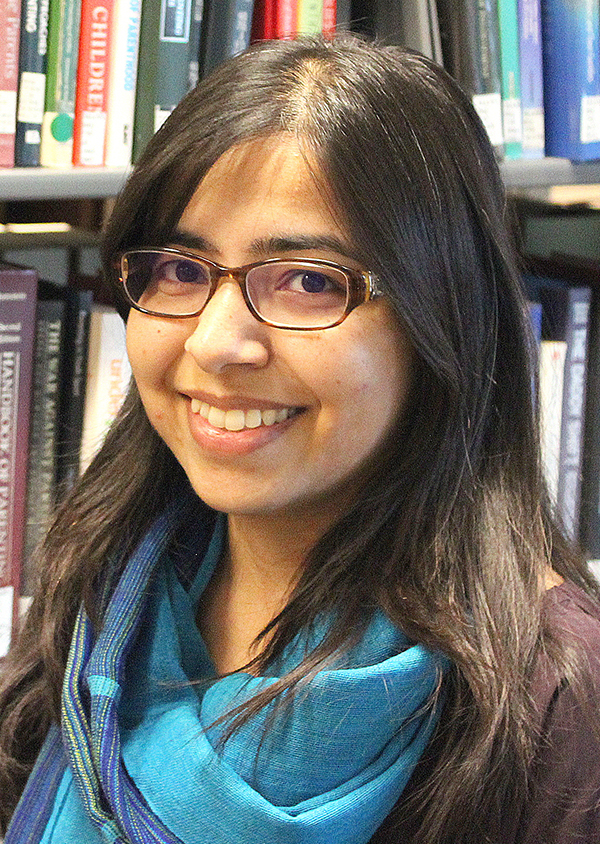Alumna, a nutrition expert in India, wins international prize
By Matt Hayes

Soumya Gupta, Ph.D ‘15, an expert studying the intersection of agriculture, nutrition and women’s status in India, is the winner of the inaugural Paula Kantor Award for Excellence in Field Research. The award from the International Center for Research on Women honors the achievement of young female researchers of Indian origin in the fields of gender and female empowerment in India.
She received the award Jan. 20 in New Delhi.
Gupta earned her doctorate in applied economics and management. At Cornell she worked as an associate with the Food Systems and Poverty Reduction IGERT program and was the inaugural scholar with the Tata-Cornell Agriculture and Nutrition Initiative (TCi), a research organization focused on solving problems of poverty, malnutrition and rural development in India. TCi scholars engage in research exploring nutritional outcomes and evaluate agricultural pathways that could catalyze positive dietary change.
“Cornell is one of the few institutions where multidisciplinary research for agriculture and nutrition is both thriving and encouraged,” Gupta said. “I had a chance to not just interact with fellow graduate students and professors from different fields, but also to gain insight into how different aspects of food systems can influence nutritional outcomes.”
As part of her research, Gupta studied farming systems throughout India and the mechanisms by which each system affects women’s empowerment and participation in agriculture, especially as it pertains to nutritional health of women and young girls. Studying the linkages between nutrition and agriculture revealed female farm workers in central India are at elevated risk of iron-deficiency anemia, a severe health problem disrupting the health and reproductive status of rural women.
Prabhu Pingali, professor of applied economics and management and director of TCi, said Gupta spearheaded critical primary data collection efforts and developed new tools to analyze quantitative and qualitative data. Those efforts, he said, produced valuable insights that will inform future TCi projects.
“The methodology she developed will serve as a model for future people-based, action-oriented empirical research promoted by TCi,” Pingali said. “Her research shows how empowering rural women can counter crippling forces disrupting the health of hundreds of millions of people. Her work promises a real and lasting impact for generations of women across India.”
Gupta credited Pingali and her adviser, Professor Emeritus Per Pinstrup-Andersen, for their advocacy of field-based research.
“There is a great need for better data and metrics in the field of agriculture, nutrition and women’s empowerment,” Gupta said. “In light of that, the Paula Kantor Award acknowledges the importance of gathering primary data for evidence-based research. At the same time the award also recognizes the tremendous effort that goes into designing a field-based data-collection activity that is methodologically robust, contextually relevant and ethically sound.”
Kantor, an expert on gender issues and international development, was killed in a terrorist attack in Kabul, Afghanistan, May 13, 2015. She worked for nearly two decades across Asia, the Middle East and Africa in policy research related to gender, agriculture and rural development.
Gupta described Kantor’s work as inspirational and said it was an honor to receive the award recognizing the pioneering scientist.
She added she hopes to use her research to inform policy reform in India, where she is based in New Delhi as a postdoctoral researcher for the TARINA consortium. The project, aimed at promoting a nutrition-sensitive food system in India, is led by TCi and funded by a recent $13.4 million grant from the Bill & Melinda Gates Foundation.
Matt Hayes is managing editor and social media manager for the College of Agriculture and Life Sciences.
Media Contact
Get Cornell news delivered right to your inbox.
Subscribe